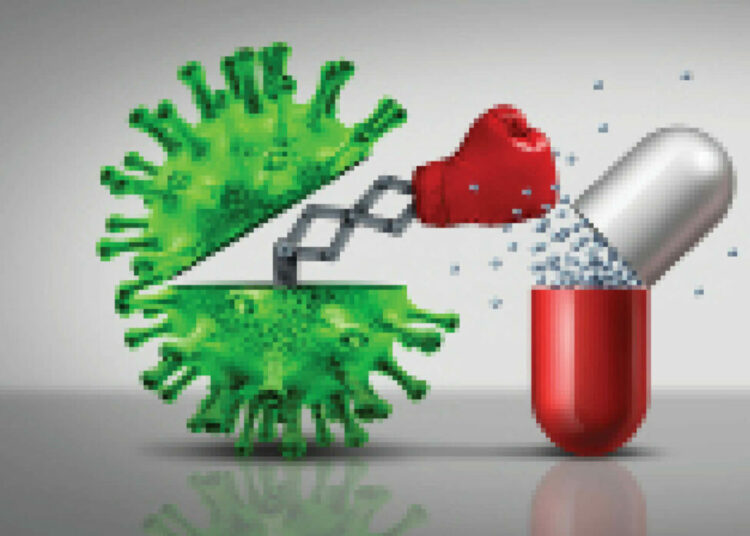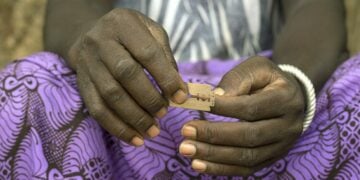It is not uncommon to walk into a pharmacy and buy antibiotics without a doctor’s prescription. Many people take them for headaches, malaria, or even a common cold infection, antibiotics can’t treat. Beneath this culture of self-medication lies a silent crisis that experts now call one of the world’s greatest health threats: Antimicrobial Resistance (AMR).
When bacteria, viruses, fungi, or parasites become resistant to the drugs designed to kill them, simple infections grow stronger, last longer, and become far more dangerous. According to the World Health Organization (WHO, 2024), one in six bacterial infections globally can no longer be treated with existing antibiotics. That’s not just a statistic, it’s a warning that the age of “superbugs” is no longer a distant fear, but a present reality.
In Nigeria, the problem runs deep. The Nigeria Centre for Disease Control and Prevention (NCDC) has repeatedly warned that misuse of antibiotics is fueling resistance. From urban clinics in Lagos to rural chemist shops in Bauchi, the pattern is similar, over-the-counter antibiotic sales, incomplete treatment doses, and counterfeit medications have become common. The result is that infections like typhoid, urinary tract infections, and pneumonia are becoming harder and more expensive to treat.
A Lancet study (2022) estimated that antimicrobial resistance causes 1.27 million deaths annually worldwide, with sub-Saharan Africa carrying one of the highest burdens. In hospitals across Nigeria, doctors are seeing infections that once responded easily to amoxicillin or ciprofloxacin now requiring stronger, costlier, or intravenous drugs, if any options remain at all.
The issue isn’t limited to hospitals. In homes, farms, and markets, antibiotics are being used in ways that quietly breed resistance. In agriculture, farmers add antibiotics to livestock feed to promote growth or prevent disease, often without veterinary supervision. These drugs then enter the food chain, and resistant bacteria can spread through meat, soil, and water. Meanwhile, the circulation of fake or substandard antibiotics, which fail to completely kill infections only worsens the problem.
And while we tend to view AMR as a medical issue, it’s also a mental and social one. The stress of prolonged illness, repeated hospital visits, or financial strain from expensive treatments takes a toll on families. Imagine a mother watching her child’s infection resist every antibiotic the doctor prescribes, or a worker missing weeks of income because a wound refuses to heal. These experiences leave scars that go beyond the physical, they drain emotional and economic strength alike.
So how do we turn the tide? The first step is awareness. Many Nigerians still believe antibiotics are a cure-all for any ailment. Hence, aantibiotics only work against bacterial infections, not viral illnesses like colds or flu. Ending this misconception requires consistent public education, especially at the community and pharmacy level.
Secondly, there must be stronger regulation and enforcement. The sale of antibiotics without prescription remains rampant. Pharmacies, patent medicine stores, and unlicensed vendors must be monitored. The government, through NAFDAC and NCDC, needs to ensure that only quality-assured antibiotics are in circulation and that pharmacies comply with proper dispensing rules.
At the hospital level, antibiotic stewardship programs are crucial. This means doctors prescribing antibiotics only when necessary, using the right drug at the right dose for the right duration. Improved laboratory capacity is also key, doctors can’t prescribe wisely without knowing what bacteria they’re fighting.
Globally, AMR threatens to roll back decades of medical progress. Surgeries, childbirth, cancer chemotherapy, and organ transplants all depend on effective antibiotics. Without them, even routine procedures could become life-threatening.
But there’s still hope. Countries like Ghana and Kenya are implementing national AMR action plans with surveillance systems and public education. Nigeria has begun similar efforts, but more must be done to scale them up, especially at local government levels where awareness is lowest.
Ultimately, the fight against antimicrobial resistance starts with each of us. Stop buying antibiotics without prescription. Finish your prescribed doses. Don’t share leftover drugs. And when you fall ill, seek medical guidance instead of self-medicating. When the drugs stop working, we all lose. Next time the urge to use an antibiotic comes, quash it before it takes root. In the end, the fight against antimicrobial resistance isn’t just a medical concern, it’s a moral one. It asks each of us to act responsibly, think beyond self-medication, and protect the power of antibiotics for the next generation. Because the truth is simple: when we misuse drugs today, we make tomorrow’s illnesses harder to cure.





